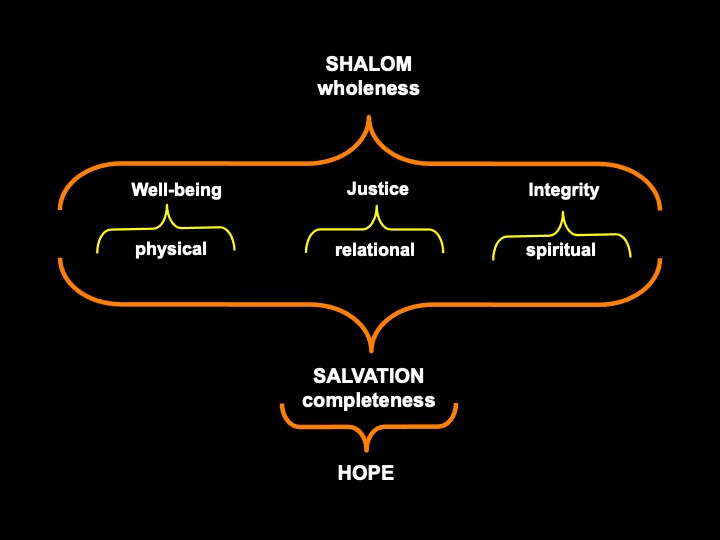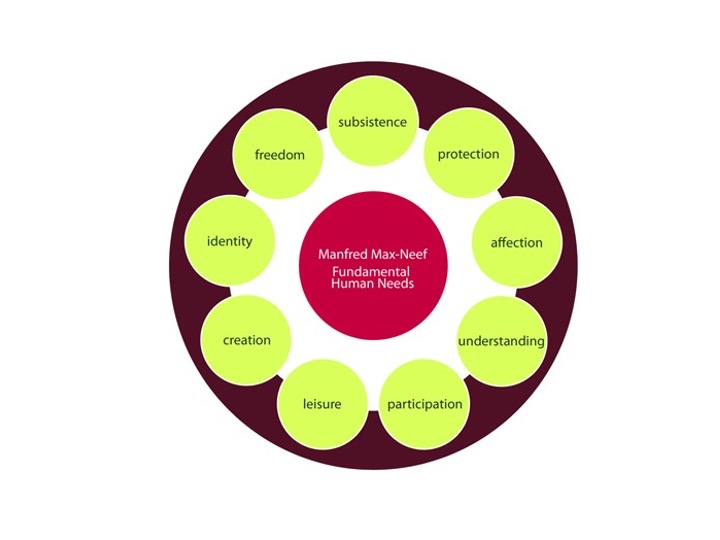Shalom is a dynamic peace and wholeness, moving and manifesting in four relationships–with ourselves, with God, with others, and with nature.
Flowing across these relationships are three shalom essentials. “For shalom to be fully present, three essential qualities must also be in place. They are: physical and material well-being and dignity for all things; justice in every relationship; spiritual integrity and uprightness within each individual.” (“Fingerprints of Fire…Footprints of Peace“, p. 30)

When I consider these three essentials I’m reminded of Maslow’s hierachy of needs, which speaks of “basic needs” (food, water, shelter, and safety), “psychological and social needs” (love, belongingness, esteem), and “self-fulfillment needs” (accomplishment and self-actualization).
I found a similar, though expanded, list, in the work of economist Manfred Neef.

What is common to all of these is a recognition that human wholeness, as relational, must include physical, social, and spiritual dimensions. The perception of shalom–and action toward shalom— must always attend to our three-fold dependence and vulnerability.
This, in some ways, maps onto the four-fold relationships of shalom, but with one key difference (I think). The four relationships are interrelated and overlapping, inseparable and not sequential. The essentials of shalom do have a somewhat sequential quality to them–it is extraordinarily difficult to have spiritual centeredness and integration if one lacks strong social connections and relationships. And it is, in turn, extremely difficult to enjoy social relationships if one is severely lacking in material and physical needs.
Perhaps, then, we could think of these as “nested,” as concentric circles, with the outer circle of material well-being including a an inner (and elevated) circle of just relationships, and within that another (and also elevated) circle of spiritual integrity.
Just thinking thinking out loud, here, making some connections and imagining the practical implications. How might you sort these ideas conceptually (in thought) and practically (in action)?







Love that picture!